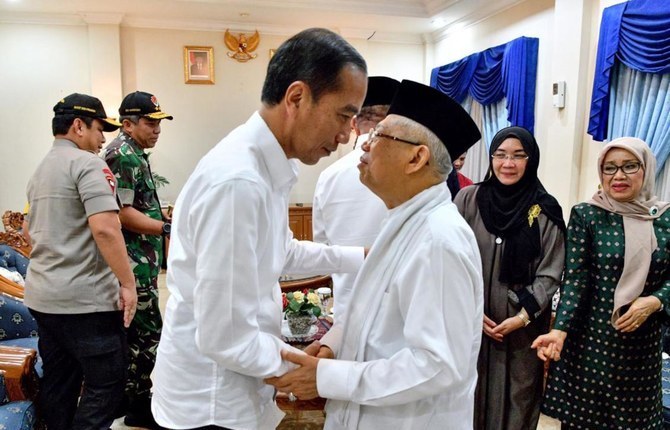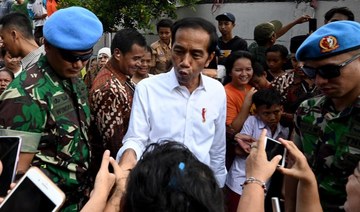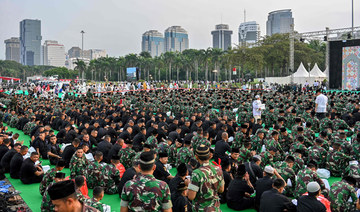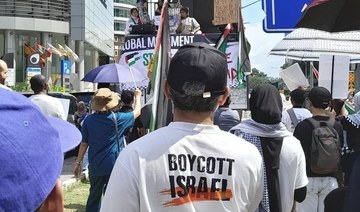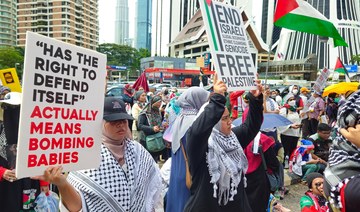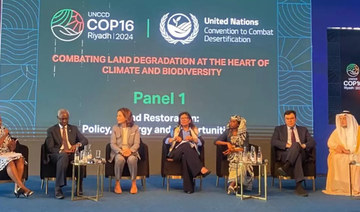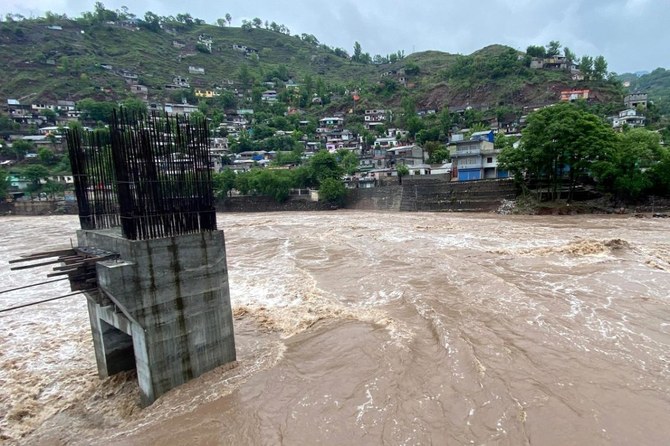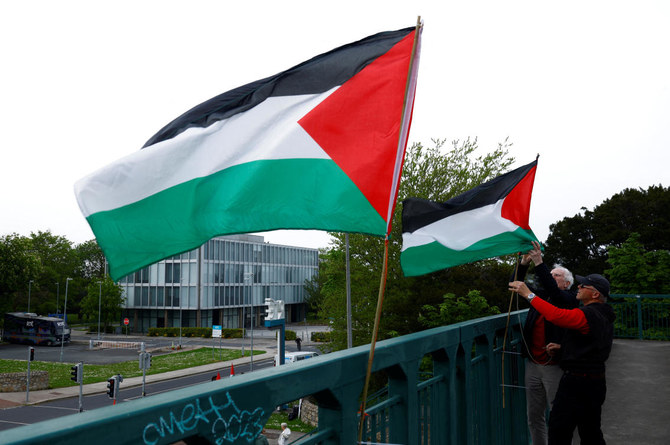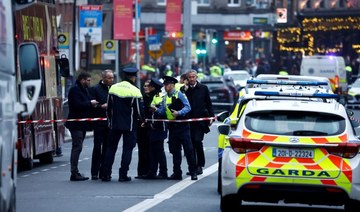JAKARTA: Indonesia’s long and divisive election saga, which has been marred by violence, has formally ended with a ruling by the Constitutional Court that clears the way for President Joko Widodo to be sworn in for a second term.
The court on Thursday rejected a challenge by retired army Gen. Prabowo Subianto, Widodo’s sole opponent in the April 17 presidential poll, who claimed that the incumbent’s victory was the result of “massive, structured and systematic” electoral fraud. Although from the start the challenge was expected to be fail, a series of events surrounding it have jeopardized the country’s political stability and internal security.
May riots
When the General Election Commission announced on May 21 that Widodo received 55.5 percent of the votes, compared with Subianto’s 44.5 percent, demonstrations denouncing the result turned violent and deadly riots broke out in several locations in Jakarta. Two days of violence claimed nine lives and left more than 900 people injured.
An investigation into the cause of the deaths is ongoing. Police have on various occasions said the riots were instigated by a third party with the aim of spreading chaos and destabilizing the country. A number of active and retired military officers had been arrested on charges that include arms smuggling, subversion and plotting to assassinate high-ranking officials, including ministers and the president’s chief security adviser.
While rights groups and activists have accused the security forces of using excessive force while dealing with the riots and called for a transparent probe, many of them also noted that the events are reminiscent of violent incidents in May 1998, also in Jakarta, that began days before former President Suharto was forced to resign. Some of the recently arrested officers were close to the late dictator, who ruled for 32 years, raising suspicions that the this year’s riots might have been part of a failed coup attempt.
Security was heightened in the capital ahead of the Constitutional Court’s announcement and dozens of suspected militants were detained in the past few weeks amid fears that terrorist groups might attempt to take advantage of the tense political situation.
End of dispute
There was a sense of deja vu about Subianto’s unwillingness to concede defeat. After the 2014 presidential election, when the gap between him and Widodo was half the size it is this year, he declared himself the winner and challenged the result, alleging electoral violations. His challenge was also rejected by the Constitutional Court on that occasion.
This time he faced an even tougher battle. The accusation of “massive, structured and systematic” fraud required him to provide evidence that a majority of the constituencies had been affected.
“Given that, by regulation, he could present only 15 eyewitnesses, there was no way to prove that the alleged rigging was massive when votes were cast at more than 800,000 polling stations during the election,” said Jakarta lawyer Pahrur Dalimunthe.
There were some irregularities but observers have been unanimous in concluding that these were unavoidable in an election in which 190 million people voted on the same day. These irregularities could not, however, have affected the final result to such an extent that would result in an 11 percent gap between the candidates, they concluded.
The court’s decision to reject Subianto’s challenge is final and binding. In October, Widodo will be sworn in for a second term.
The future
Ahead of the Constitutional Court’s first hearing in mid-June, Subianto posted a video on his Facebook page in which he urged his followers to refrain from demonstrating and stay away from the court to avoid further unrest. While no serious incidents were recorded on Thursday, and Subianto officially accepted the decision of the court, the degree of polarization in Indonesian society and its political elites remains high. The president will have to cope with an unprecedented scale of divisions, which have been aggravated by months of political campaigning.
When the election results were announced in May, officials from the president’s circle began to hint that members of the opposition might be invited to be part of Widodo’s next Cabinet. While the leaders of the major parties that backed Widodo’s rival have given clear signs that they would be interested in participating in such a Cabinet, until recently there was no mention of whether the invitation would extend to Subianto himself and his Great Indonesia Movement (Gerindra), the strongest opposition party.
Several days ago, however, senior Gerindra members confirmed that their leader has been in talks about receiving ministerial posts in Widodo’s Cabinet. If this happens, there will be virtually no opposition to the government and the president will be able to double down on reform efforts during his second term.
There are doubts, however, about whether such a “rainbow government” is possible. According to political commentator Hamid Basyaib, talks of this kind between key stakeholders is normal and does not necessarily indicate that Subianto will be welcome in the Cabinet.
“Widodo himself will easily open his arms to anyone,” he added. “He has no problem with that. But this needs to be seriously discussed among the highest ranks of his party and in the coalition (of other parties that endorsed him).”
The next few weeks will start to reveal how well Widodo can navigate his way through such complex conflicts of interests. The ruling of the Constitutional Court at least means he can at least officially begin the process.



